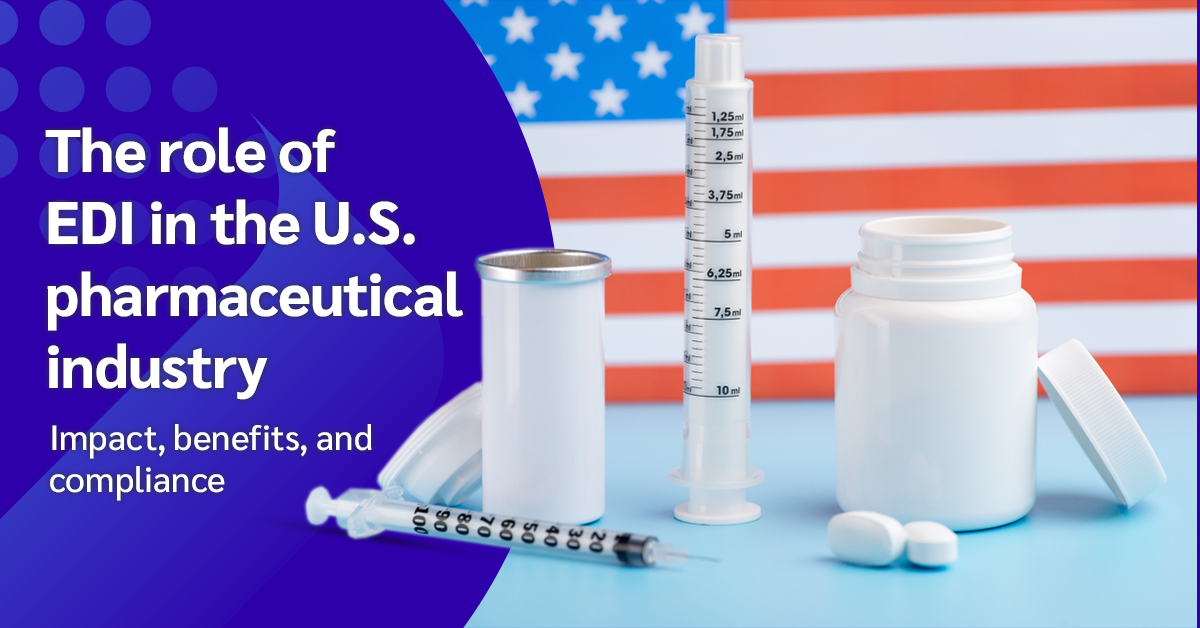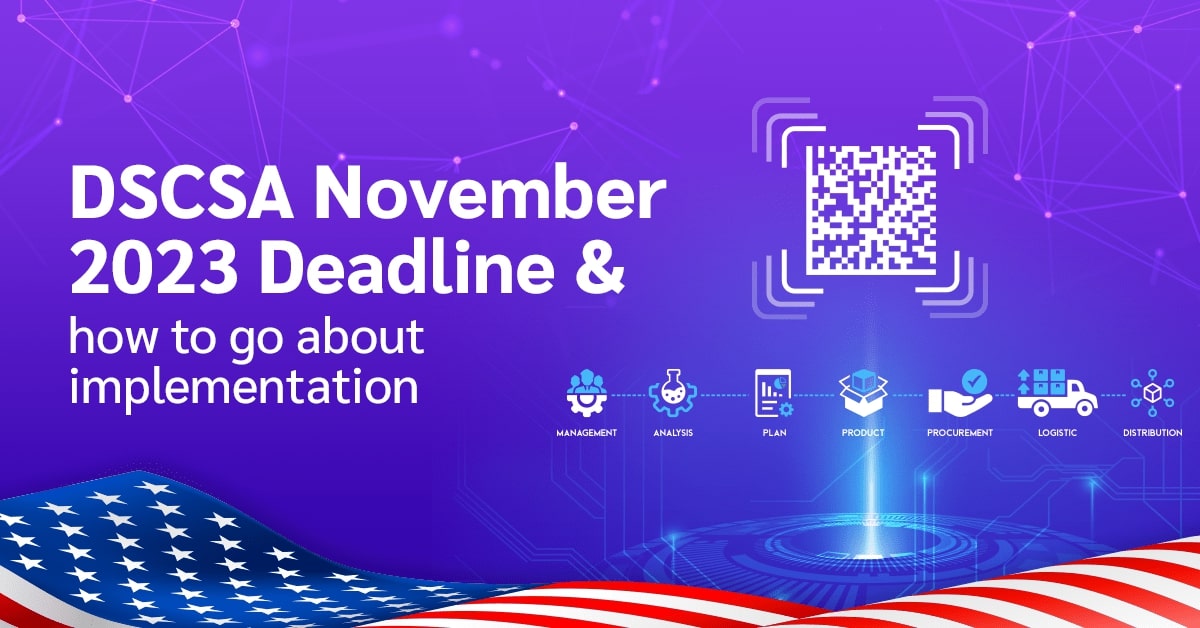In the rapidly evolving pharmaceutical industry, where accuracy, efficiency, and compliance are paramount, Electronic Data Interchange (EDI) has emerged as a crucial tool.
EDI enables the seamless exchange of business documents between trading partners, reducing the reliance on paper-based processes and enhancing operational efficiency.
This blog delves into the impact of EDI in the U.S. pharmaceutical industry, its benefits, and the critical need for compliance in this highly regulated sector.
A Brief History of EDI
EDI was developed in the 1960s to streamline and automate the exchange of business documents, such as purchase orders, invoices, and shipping notifications, between organizations.
Its origins are often credited to Edward Guilbert, known as the “father of EDI,” who laid the groundwork for EDI in the late 1940s and 1950s by creating standardized formats for sending cargo information during the Berlin Airlift.
The modern form of EDI began to take shape in the 1960s and 1970s as corporations sought faster and more efficient ways to communicate transactional information.
The Transportation Data Coordinating Committee (TDCC), founded in 1968, helped develop industry-specific standards for EDI to enable communication across different sectors, especially logistics and transportation.
By the 1980s, EDI was widely adopted across various industries, including retail, manufacturing, and healthcare, including pharmaceuticals.
The Impact of EDI on the Pharmaceutical Industry
The need for Electronic Data Interchange (EDI) in the pharmaceutical industry is driven by the industry’s complexity, regulatory requirements, and the need for efficiency and accuracy.
EDI plays a transformative role by automating the exchange of vital information, such as purchase orders, invoices, shipment notices, and inventory updates, between manufacturers, distributors, and retailers.
Here’s why EDI is essential in this sector:
1. Enhanced Supply Chain Efficiency:
– EDI streamlines the supply chain by enabling real-time data exchange. This reduces the time required to process orders and manage inventory, leading to faster delivery times and improved coordination among stakeholders.
2. Reduced Operational Costs:
– EDI significantly reduces operational costs by eliminating manual data entry and paper-based processes. The automation of routine tasks minimizes human error, decreases administrative expenses, and improves overall productivity.
3. Improved Data Accuracy:
– EDI ensures the accurate and consistent exchange of data, which is critical in the pharmaceutical industry, where even minor errors can have adverse consequences.
4. Strengthened Regulatory Compliance:
– The pharmaceutical industry in the United States is subject to stringent regulatory oversight, including the Drug Supply Chain Security Act (DSCSA) and Good Manufacturing Practices (GMP). EDI facilitates compliance with these regulations by providing a standardized and secure method for exchanging necessary documentation, such as transaction histories and traceability reports.
The Benefits of EDI in the Pharmaceutical Industry
The adoption of EDI brings a multitude of benefits to pharmaceutical companies, enhancing their ability to compete in a highly regulated and competitive market.
Some of the key benefits include:
- Faster Order Processing: Accelerating the order-to-cash cycle by automating the exchange of purchase orders and invoices. This speed not only improves cash flow but also ensures that products reach the market more quickly, which is crucial for life-saving medications.
- Increased Visibility and Transparency: Providing real-time visibility into the supply chain, enabling companies to track orders, shipments, and inventory levels with greater precision. This transparency is essential for managing supply chain risks and responding swiftly to market demands.
- Enhanced Collaboration with Trading Partners: Strengthening collaboration between pharmaceutical companies and their trading partners as there is a common platform for data exchange. This improved communication leads to better decision-making and more efficient supply chain management.
- Scalability and Flexibility: As EDI solutions are scalable, they allow pharmaceutical companies to easily expand their operations without disrupting existing processes. With companies growing or entering new markets, EDI systems can adapt to accommodate increased transaction volumes and new business partners.
Ensuring Compliance with EDI in the Pharmaceutical Industry
Non-compliance can result in severe penalties, including fines, product recalls, and damage to a company’s reputation. Here’s how pharmaceutical companies can ensure compliance with EDI:
1. Adopt Industry-Standard EDI Formats:
– It is essential to use industry-standard EDI formats, such as ANSI X12 or EDIFACT, which are recognized by regulatory bodies. These formats ensure that the data exchanged meets the requirements of U.S. regulations and is compatible with the systems of trading partners.
2. Implement Robust Data Security Measures:
– Given the sensitive nature of pharmaceutical data, companies must implement strong data security measures to protect against unauthorized access and data breaches. This includes using encryption, secure transmission protocols, and regular audits of EDI systems.
3. Maintain Accurate and Up-to-Date Records:
– Regulatory compliance in the pharmaceutical industry requires meticulous record-keeping. EDI systems should be configured to automatically archive transaction records, ensuring that all data is easily retrievable and in compliance with legal retention requirements.
4. Regularly Review and Update Compliance Processes:
– Regulatory requirements in the pharmaceutical industry are constantly evolving. Companies must regularly review and update their EDI compliance processes to align with new regulations and industry standards.
5. Partner with EDI Providers Experienced in Pharma Compliance:
– Working with EDI providers who have experience in the pharmaceutical industry and a deep understanding of its regulatory landscape can help companies navigate compliance challenges more effectively.
Conclusion
EDI has become an indispensable tool in the U.S. pharmaceutical industry, offering significant benefits in terms of efficiency, cost savings, data accuracy, and regulatory compliance.
As the industry continues to evolve, the role of EDI will only grow in importance.
However, to fully leverage the advantages of EDI, pharmaceutical companies must remain vigilant in ensuring compliance with regulatory standards.
By adopting best practices and working with experienced EDI providers, companies can harness the power of EDI to drive success in a highly competitive and regulated environment.
Learn how Jekson can help you with EDI implementation.
To learn more, contact us at E: marketing@jeksonvision.com | M: 919-646-5530
Jekson USA, 395 Park Ave, Youngsville, North Carolina, USA 27696







